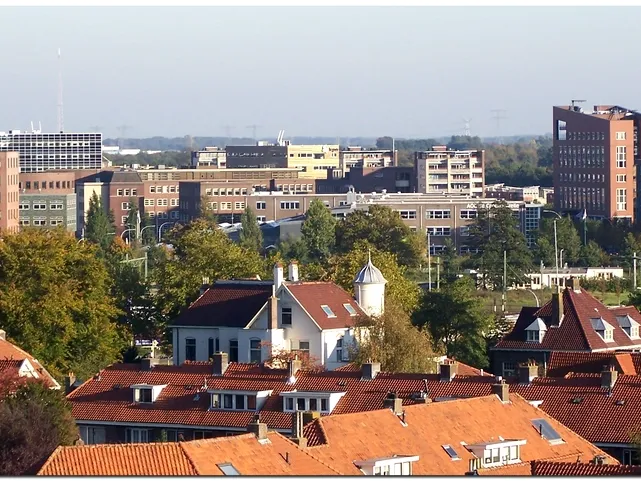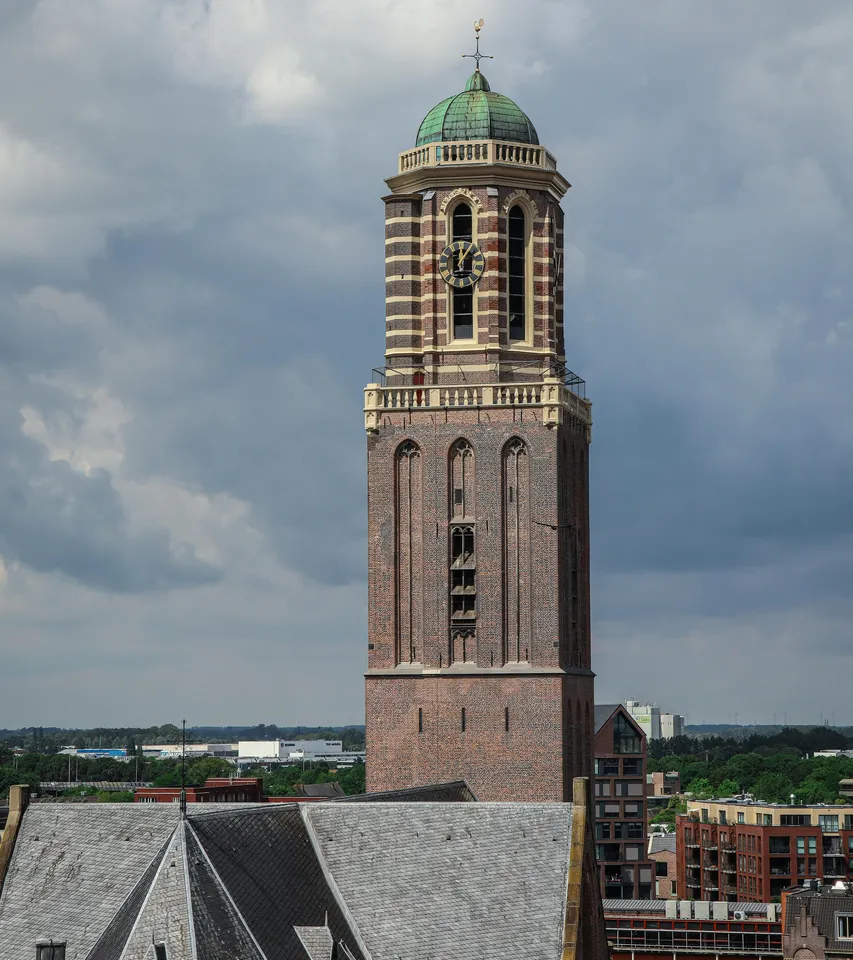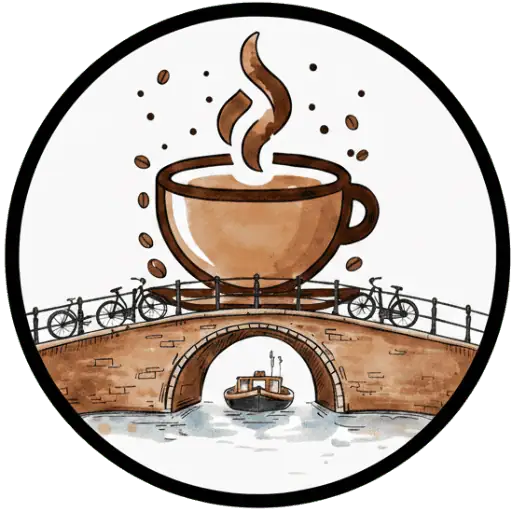
Coffee forms a rich tradition in Overijssel, from Hanseatic warehouses to hip micro-roasters. Local roasteries, latte-art competitions and sustainable initiatives turn every cup into a story of history, hospitality and innovation that firmly connects residents in Zwolle, Deventer, Enschede and Kampen.
Roasters in Overijssel
No roasters have been found yet.
Cities in Overijssel

Zwolle
Zwolle breathes coffee. From Hanseatic‑era roasteries to Mocca d’Or’s high‑tech roasting centre, the city combines centuries of craftsmanship with innovation and sustainability. Top cafés shine in the Misset Koffie Top 100, while circular projects turn spent coffee grounds into tasty opportunities for entrepreneurs and residents.
More about Overijssel
Introduction
Coffee runs like a warm red thread through Overijssel. From a status symbol in chic shops to a familiar cup at the kitchen table, the drink reflects trading traditions, hospitality, and innovation. This article sketches the evolution, the players, and the trends behind this beloved cup.
From Luxury to Everyday Habit
In the seventeenth century coffee trickled into the country via Amsterdam, but in Overijssel it remained costly for a long time. Nineteenth‑century shops such as the Balletjeshuis in Zwolle sold coffee mainly to the well‑to‑do who showed off silver services.
After the Second World War everything changed. Mass production made beans affordable and filter coffee became everyday. Today many residents just as easily choose a cappuccino or flat white, while the dialect word "konkelen" still means cozy gossiping over coffee.
Roasters Who Define the Flavor
Overijssel boasts both centuries‑old roasters and fresh micro‑roasters. Their beans find their way into hospitality venues, offices, and living rooms across the province.
- Ten Have, Deventer, since 1828, grew from a grocer's shop into a fixture with a modern roastery.
- De Eenhoorn, Kampen, has hosted a tasting room since 1883 where visitors can taste Hanseatic history.
- Mocca d’Or, Zwolle, started as Algra in the 1930s and now supplies more than 25 varieties from ’t Konkeltje.
- Lambo Koffie, Enschede, roasts small batches every morning so the Twente city centre smells of freshly roasted beans.
- Ko Koffie, Enschede, delivers direct‑trade single origins by bike and pays farmers above‑market prices.
- De Eenhoorn, Kampen, has hosted a tasting room since 1883 where visitors can taste Hanseatic history.
- Mocca d’Or, Zwolle, started as Algra in the 1930s and now supplies more than 25 varieties from ’t Konkeltje.
- Lambo Koffie, Enschede, roasts small batches every morning so the Twente city centre smells of freshly roasted beans.
- Ko Koffie, Enschede, delivers direct‑trade single origins by bike and pays farmers above‑market prices.
Events that Connect
Coffee brings people together, whether it’s a city walk or a championship. In Kampen the monthly “Koffiemomentje” pours free cups for entrepreneurs and residents to share plans. The hour of networking ends sharply at ten, but new ideas often keep bubbling for longer.
Roasters also host tours and cuppings. Guests smell the roast, learn about origin and test flavour profiles. Deventer, Enschede and Zwolle host latte‑art competitions, while barista Niels te Vaanhold represented the Netherlands on the world stage in 2023 with his perfectly measured espresso.
What Does Overijssel Drink?
Just as elsewhere in the Netherlands, the majority reach for coffee every day. Nationally, more than half drink at least two cups a day, and Overijssel follows that pattern. About 87 percent brew their cup at home or in the office, although café visits are slowly increasing.
Filter coffee remains the favourite, but fully automatic espresso and capsule machines are gaining ground. In cafés, cappuccino tops the list, followed by the flat white. Younger coffee fans also experiment with cold brew or plant‑based milk, while older generations stay loyal to a simple black cup with a biscuit.
Sustainable Initiatives
Conscious choices are part of modern coffee drinking. Overijssel leads the way with creative projects that help farmers and the environment.
– Fairtrade Municipalities such as Borne and Raalte serve only certified coffee in public buildings.
– Deventer Koffie invests fifty percent of its revenue directly in Ugandan youth who are starting a coffee business.
– The Kolektif donates one euro per kilo sold back to the grower and minimizes transport emissions.
– Anders Koffie, Zwolle, roasts with a Loring roaster that emits eighty percent less CO₂ and collects used coffee grounds for circular soap.
– Thanks to the national Green Deal, plastic coffee pads are disappearing; compostable versions could reduce up to 88 million kilos of residual waste per year.
– Deventer Koffie invests fifty percent of its revenue directly in Ugandan youth who are starting a coffee business.
– The Kolektif donates one euro per kilo sold back to the grower and minimizes transport emissions.
– Anders Koffie, Zwolle, roasts with a Loring roaster that emits eighty percent less CO₂ and collects used coffee grounds for circular soap.
– Thanks to the national Green Deal, plastic coffee pads are disappearing; compostable versions could reduce up to 88 million kilos of residual waste per year.
Conclusion
Overijssel shows how history, craftsmanship and sustainability together create a vibrant coffee identity. From Hanseatic warehouses once filled with colonial goods to electric cargo bikes packed with fresh beans, the province keeps innovating without losing its old‑world coziness. Here, a steaming mug says more than a thousand words.
